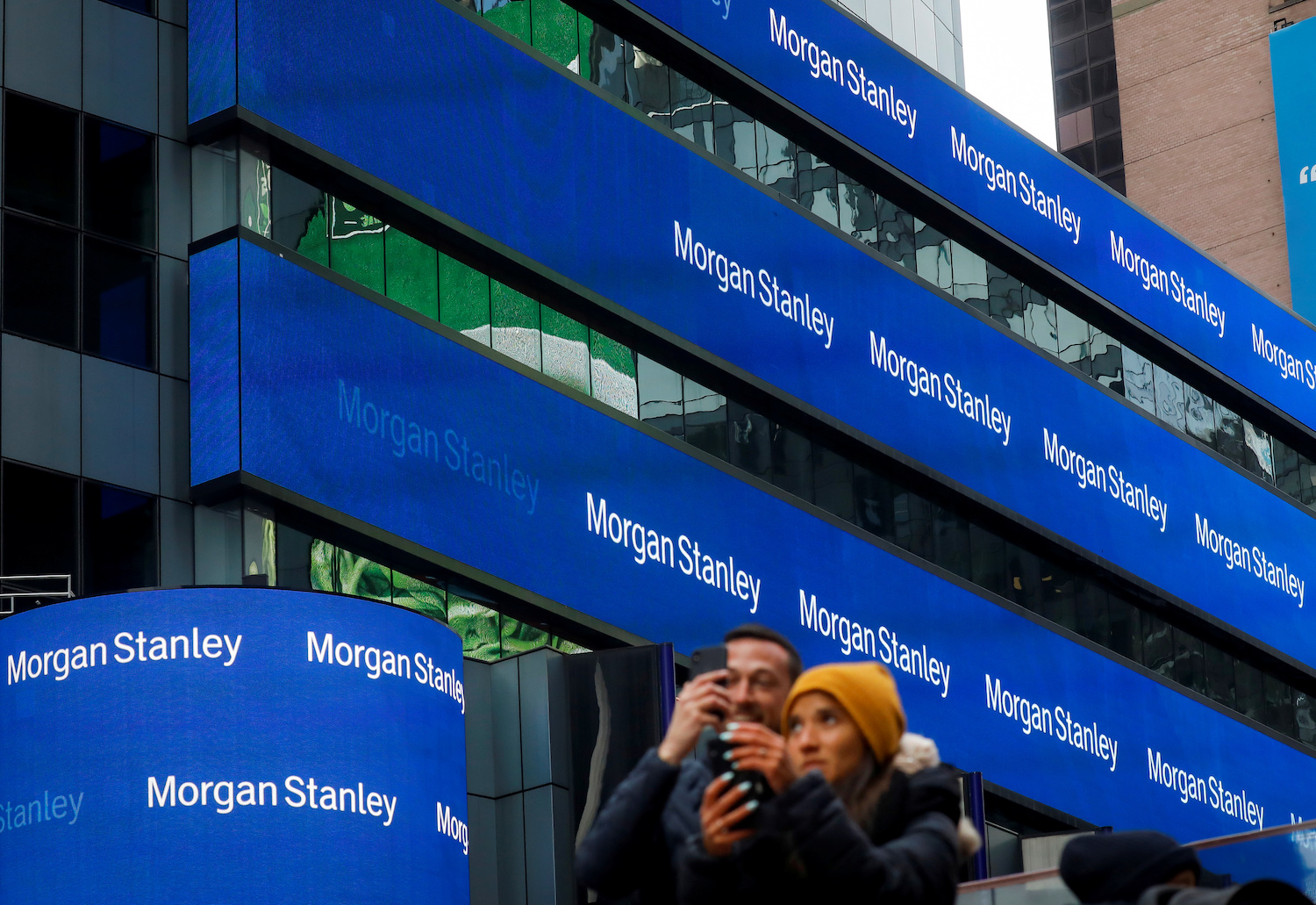China is poised for a mini growth upturn in 2022 after its debt-to-GDP ratio plummeted by a record this year, Morgan Stanley said.
The investment bank sees growth reaching 5.5% next year on policy easing, large public expenditure, a gradual revival of consumption, and a green investment boom, said economists led by Robin Xing in a November 14 note. China’s debt/GDP ratio plunged 10 percentage points this year to 283% amid policy tightening and a slowdown in growth to an estimated 4.9% in the second half, they said.
“China has orchestrated its most far-reaching tightening in 2021 to ensure more sustainable long-term growth,” said Xing. “We expect a clear policy shift toward counter-cyclical easing, featuring a slightly wider augmented fiscal deficit in 2022 with a corporate tax cut, pro-consumption measures, and green infrastructure boost.”
That policy shift will bring a ”mini growth upturn” next year, helped by a boom in green investment to ensure energy security and that may offset weaker property investment, Xing said
‘Modest’ housing slowdown
The Morgan Stanley researchers expect a modest housing slowdown but “robust completion” by real estate developers.
They expect property fixed-asset investment growth to slow to 2% in 2022, from 4.8% this year, they said. They tip the real estate market to bottom out in the current quarter, then remain negative in the first half of next year, before turning positive in the second half of 2022. Housing completion growth will remain robust at 8% in 2022 on the back of still resilient growth of floor space under construction, they said.
The investment banks’ expectation of a manageable property investment slowdown hinges on whether policy easing would stabilize market expectations and hence housing sales, they said.
Risks to the property outlook though “skew to the downside, in particular for property sales,” they said. Should policy fail to bring a meaningful rebound in housing sales, and they slip to minus 15% in 2022, there would be a 12% contraction in new housing starts and a 5% drop in home completions, they said.
A housing downturn of that scale would take 1 percentage point off the growth forecast, they said.
Green Investment
The Morgan Stanley economists foresee a green investment boom. They expect support to ramp up for “renewables, smart grid, power storage equipment, and manufacturing equipment upgrades, as power outages in September prompted Beijing to accelerate decarbonization-related investments before de-investment in high-emission sectors”.
The People’s Bank of China estimates that the country’s green investment amount could reach 2.2 trillion RMB/yuan (over $344 billion) a year this decade, they said or 1.2-2% of GDP annually, “and we believe it will likely be front-loaded in the coming few years to ensure energy security and partly offset drags from weaker property investment”.
Green loans and bonds are on track to reach 4 trillion yuan ($626.5 billion) this year, they said, with half related to green infrastructure capital expenditure.
The installation of wind and solar power capacity will increase to 121 GW in 2022, 32% higher than this year, they said. The amount of green financing will pick up further to about 6 trillion yuan ($940 billion) next year on the back of policy support, bringing a 0.2% boost to GDP growth in 2022 vs its 2020-21 average, they said.
• Jim Pollard
ALSO SEE:
China’s Sweeping Regulatory Crackdowns a ‘Profound Policy Shift,’ Morgan Stanley Says
China Regulators Scramble to Ease Investor Fears Over Crackdown
WATCH MORE:
























